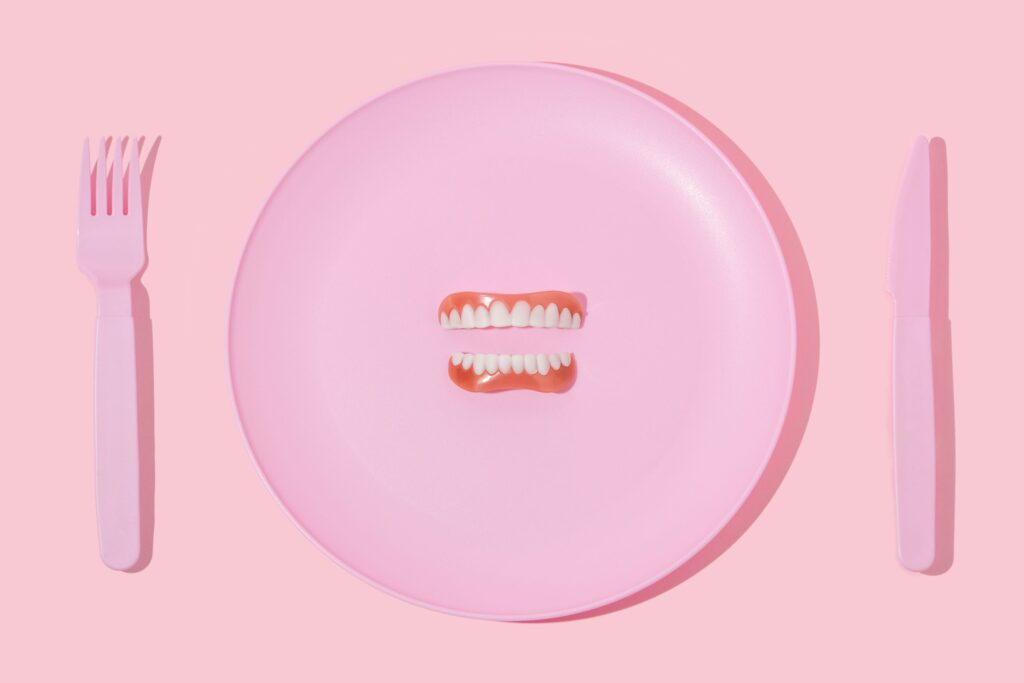
Dentures are the tried-and-true method for refurbishing mouths after tooth loss because of their many advantages. With a single prosthetic, you can simultaneously rebuild your smile’s appearance and functionality. Whether you need a full or partial set, basic tasks like speaking and eating are ideally much easier once you have artificial teeth in place.
These restorations have a well-known reputation for successfully giving you back a good portion of your chewing power. However, you might be surprised to learn that scientific studies in recent years have associated them with declining nutrition. Continue reading to learn more about how your dentures can potentially affect your general health!
How Does Tooth Loss Affect Nutrition?
Your teeth play a crucial role in your ability to thoroughly grind food so that it can be easily swallowed and digested. Without a full set, you might struggle to bite into hard or chewy options. Unfortunately, many ingredients with high nutritional values, like tough meats or fresh fruits and veggies, fall into this category.
If you have gaps in your grin, you might try to stick to a diet of soft foods that are easier to eat but also aren’t as good for your body. Furthermore, you’re more likely to swallow overly large pieces that are difficult to process. As a result, some patients develop gastrointestinal problems or malnutrition after losing permanent teeth.
How Do Dentures Affect Nutrition?
Dentures can restore anywhere from 10% to 30% of your original chewing power so that you can enjoy a more wholesome diet. It’s easy to assume that people with these prosthetics must therefore have better nutritional markers, but that’s no necessarily the case.
In a study shared by the Journal of Prosthodontics in 2022, experts found that denture wearers have an increased risk for undernutrition compared to others. For this study, dental records for more than 10,000 patients in Indiana were matched with their medical laboratory data that included blood count, a basic metabolic profile, and lipid and thyroid panel tests along with markers for malnutrition.
They compared the lab information for denture wearers two years before they received their artificial teeth to two years afterward and were surprised by what they discovered. Those who wore them had a significant decline in certain nutrition markers that wasn’t reflected in the other patients.
How Can I Improve My Health with Dentures?
If you’re worried about your artificial teeth impacting your health, you might ask your dentist about implant dentures. This involves surgically placing 4 to 6 titanium rods into your jaw that fuse with the bone as they heal. Then, your dentist provides prosthetics that anchor to them for a more reliable and permanent method to replace your missing teeth.
If you’re unsure whether you’re a good candidate for implant dentures, the best way to find out is to schedule a consultation with your provider!
About the Author
Dr. Ashley Civetti proudly offers a full range of 5-star dental care services that can increase your dental health to improve your daily quality of life. She earned her Doctor of Dental Science degree from the University of Texas Health Science Center School of Dentistry at Houston, where she graduated with honors. She’s committed to ongoing education through programs at the Kois Center and is a member of several prestigious professional organizations. She combines science with artistry to help design lifelike restorations, then utilizes state-of-the-art equipment to help keep you comfortable while delivering accurate results. If you’re interested in implants, you can request a consultation on the website or call (561) 798-4200.
